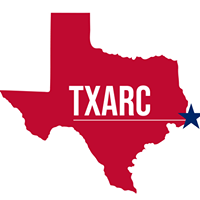San Francisco EXAMINER EDITORIAL WRITER Feb. 22, 1999
———————————————————————- ———-
Adoptees’ drive for right to identify birth parents can conflict with elders’ need for privacy
IN APPROVING a two-sentence initiative last November, Oregon voters set off a 21-year time bomb. Explosions are already being heard.
Measure 58 would allow anyone 21 or older who was born in Oregon to obtain a copy of his or her original birth certificate. Sounds simple enough. But until now, that right has been denied to people who were adopted, because on that certificate are the birth parents’ names.
The process in Oregon is basically the same as it is in 48 other states. Once an adoption takes place, a second birth certificate is created that lists the new parents. The original certificate is sealed away, and the adoptee cannot see it without a court order. Alaska and Kansas have open access to adoption records. Tennessee passed such a law in 1996, but it is stalled in the courts.
The Oregon measure is also on hold because a group of birth mothers has sued, arguing that state statutes promise them confidentiality and to break that promise would be unconstitutional.
In the meantime, lives – although not yet shattered – are crumbling, revealing the fault lines of heartbreak on which they’ve been built.
Take this slice of real life reported in Time Magazine: Two decades ago, when C. was in college, a man beat and raped her. Devastated, she had a baby girl but gave her up for adoption. Last year, after much soul-searching, she decided to find out what had become of her child. She gave the state where the baby was born permission to contact her if the child asked her whereabouts. The two began exchanging letters through the adoption agency, but C. held back her identity and whereabouts.
A wise move, she now says. After C. told her daughter about the rape, the young woman wrote back an oddly merry and uncomprehending note – “Hi, how’s everything going?” She said she was glad to learn “about my father’s situation” and wanted to know how to find him. The daughter, with the help of her adoptive mother, persisted in searching for her father, the man C. had helped send to prison. Fearing that he might find her through their daughter and harm her again, C. ended all contact.
Measure 58 would remove the buffer of an intervening agency in any tentative first steps toward contact.
Anguish is everywhere in the adoption equation. The anguish of the birth mother, perhaps the victim of rape or incest, most often young and at a loss, with a fateful decision to make. The anguish of adoptive parents who may have wanted a child for years and been unable to conceive. And eventually, the anguish of adopted children haunted by phantom birth parents who, they may feel, “abandoned” them – beings who exist and who are identified in state records but whom they cannot know. Phantom limbs on the family tree.
Opponents of the measure include the Washington-based National Council for Adoption, a nonprofit group that includes many church-affiliated adoption agencies and has been accused of being a Trojan horse for the Mormon church.
Chief petitioner in Measure 58 is Helen Hill, an adoptee and member of Bastard Nation, a radical adoptee-rights group that has a San Rafael address but mostly exists on the Internet. “This is about civil rights,” she says. “There is no reason we should be denied a basic right.”
Opponents of the measure say you can’t uphold one person’s civil rights by trampling on those of another.
Hill told an Oregon newspaper that Bastard Nation was born when a core group of adoptees got frustrated with the adoption world’s old guard and decided they wanted unconditional access to adoption records. Immediately. One of that core group, Marley Greiner, writes on the group’s Web site: “What I am angry about, and I believe nearly all adoptees are angry about, is the secrecy-shame context of the closed adoption system.
“When I end my letters with “By any means necessary’ . . . I am dead serious. Mass burnings of amended birth certificates, . . . crank letters to legislators, solidarity with adoptees in Greece and Spain who have demanded access to their records, heritage and histories. It’s all up to us. Power is not given; it is taken.”

It’s almost as if the angry children of Bastard Nation who fought so hard for Measure 58 are outing their own mothers. Where is the concern for a mother confronted by an angry, perhaps dangerous child? What if the mother, more mature now, has a family she has protected from her own past?
And what of a young woman who finds herself pregnant in Oregon? In the past, she could give life to her child, yet close the door tightly on her own hurt. Knowing that the law forever props the door to her past ajar, will she be less likely to choose adoption over abortion?
Adoption laws are remnants of another era – when only “bad” girls got pregnant and were discreetly sent away until the child was born and “given away.” The town might have whispered, but nothing was ever said. Those laws need to be humanely amended, but the initiative process and its simplistic reduction of a sensitive issue is not the way to go. Wise legislation – and a determined effort to lessen the heartbreak for everyone involved – is.


 New York Adoptee Rights Coalition
New York Adoptee Rights Coalition











